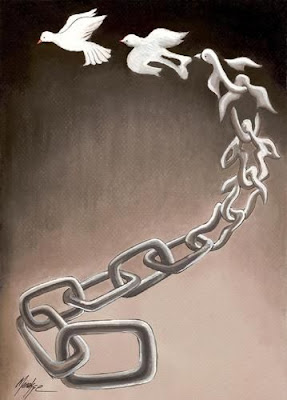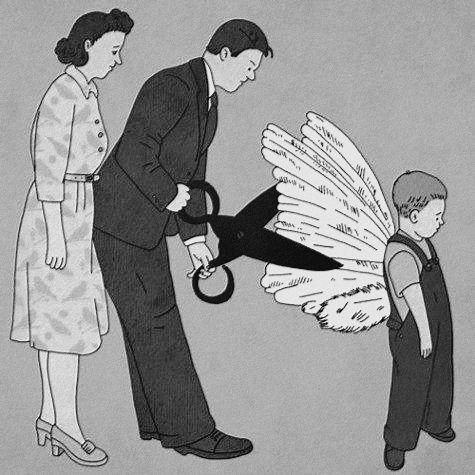Our caste, class, religion, and nationality are decided at birth. Other considerations such as gender, physical appearance, and skin color are characteristics that are immediately associated with us.
Where do beliefs come from? Who benefits from them?
What is the impact?
After discussing the concept of power in our previous workshop and concluding that sharing power is a crucial step towards developing resilience and making a positive impact, it felt natural to start exploring beliefs that TAKE AWAY our power by negatively impacting our self-esteem and ability to dream big.
This becomes especially true with leaders of NGOs working with communities that have been deprived and traumatized by these beliefs. Though this discourse on beliefs is true for everyone, it becomes even more detrimental for women from "lower" castes or classes. In this workshop, we explored the implications of these harmful beliefs in the mental wellness session.

For the participants, this conversation is pertinent as they are working with communities to combat gender based violence by providing education and support to women.
What beliefs operate within them, their communities, and the more extensive social system?
We often make assumptions about people based on beliefs that are related to these characteristics.
For example:
If you are born blind, you will always be dependent.
If you are born a boy, you will be an engineer or an important officer.
If you are born a girl, you will be a doctor.
If you belong to a "lower" caste, you will never make it big.
There is a relationship between our inner voices and outer voices. Many beliefs that inform behavior are formed from social conditioning rather than individual experiences.

As we grow up, more of these beliefs become associated with us. We buy into them and make choices that do not necessarily benefit us.
So we must ask ourselves:
Where do beliefs come from? Who benefits from them?
What is the impact?
After discussing the concept of power in our previous workshop and concluding that sharing power is a crucial step towards developing resilience and making a positive impact, it felt natural to start exploring beliefs that TAKE AWAY our power by negatively impacting our self-esteem and ability to dream big.
This becomes especially true with leaders of NGOs working with communities that have been deprived and traumatized by these beliefs. Though this discourse on beliefs is true for everyone, it becomes even more detrimental for women from "lower" castes or classes. In this workshop, we explored the implications of these harmful beliefs in the mental wellness session.
We began by playing a scene from the movie “Shrikant” based on Shrikant Bolla of Bollant Industries’s life. Shrikant was born blind, and the joy that his father expressed in having a son was soon overshadowed by everyone suggesting that something was wrong with him, that he would be forever dependent on his parents, and even that he needed to be returned to God. The scene highlights the dichotomy of the social celebration associated with having a boy child and the social rejection of anyone with a physical deformity.
We had an enriching conversation about how beliefs are formed and their impact on beliefs in our OWN realities.
Diving deeper, we explored beliefs related to marriage and money.
Beliefs around gender, physical challenges and social pressures related were identified.
The conversations revealed how these beliefs often safeguard the patriarchy. A fundamental question I learned via my narrative practices training is, “Who benefits from these beliefs? The power imbalance outside is maintained by these beliefs. For example, the belief that marriage has to be maintained no matter what or that a married woman is superior to a single/divorced/widowed woman keeps men and women trapped in unhealthy relationships, leading to tolerating violence and many other social problems.
For the participants, this conversation is pertinent as they are working with communities to combat gender based violence by providing education and support to women.
What beliefs operate within them, their communities, and the more extensive social system?
This question will help them discover solutions to the problems they are trying to address.
These beliefs become values.
An observation I recently made is that despite being aware of the often negative reality of marriage, many girls believe that marriage will free them from the current rejection and oppression they experience daily. That is why, despite education opportunities, they still seek a groom to “settle” down in the eyes of society. Subconsciously, they have internalized the idea that marriage is more important in life than anything else, and there is hope that despite the negative narratives surrounding it, their fate will not be the same. They will get a “good” man for themselves. Anyone giving them a little attention seems like a “good” man; therefore, they are willing to let go of their independence. Having never experienced independence before, they are often afraid of being alone, unconsciously perpetuating the belief that marriage is the only secure route.
Beliefs that become values are difficult to challenge.. So how DO we challenge them? Instead of directly challenging them, I employed a lens that I learned in Narrative Practices. I supported them in questioning these beliefs.
Where do these beliefs come from?
Who benefits from them?
What is the impact?
Through these workshops, we hope the leaders will continue to question their own negative beliefs, enable their communities to ask questions and reclaim their power.
Changing our beliefs and values takes considerable time and effort. At Parity Lab, we are constantly searching for new ways to offer support to our fellows so that we can help them tune into the beliefs, inner voices, thoughts, and emotions that will help them live a more calm, powerful, and joyous life and be effective in the work they provide.
by Dr. Sanjyot Pethe, Wellness Associate at Parity Lab.
An observation I recently made is that despite being aware of the often negative reality of marriage, many girls believe that marriage will free them from the current rejection and oppression they experience daily. That is why, despite education opportunities, they still seek a groom to “settle” down in the eyes of society. Subconsciously, they have internalized the idea that marriage is more important in life than anything else, and there is hope that despite the negative narratives surrounding it, their fate will not be the same. They will get a “good” man for themselves. Anyone giving them a little attention seems like a “good” man; therefore, they are willing to let go of their independence. Having never experienced independence before, they are often afraid of being alone, unconsciously perpetuating the belief that marriage is the only secure route.
Beliefs that become values are difficult to challenge.. So how DO we challenge them? Instead of directly challenging them, I employed a lens that I learned in Narrative Practices. I supported them in questioning these beliefs.
Where do these beliefs come from?
Who benefits from them?
What is the impact?
As the group discussed the questions, some insights came up. One was about the institution of marriage. Often, the promise of security through marriage is used to keep women within the house, ultimately serving the patriarchy. The impact is that we buy into this belief, if not consciously, then unconsciously.
The same applies to our beliefs surrounding money. We begin to associate money with security, safety, and success. People with money are seen as more potent than those who do not have money. The audience that we are working with is NGOs. They are financially dependent on funders. This often causes them to internalize the belief that the funder is more powerful, making them feel less powerful. Questioning these beliefs is essential for the experience of personal power and freedom.
Through these workshops, we hope the leaders will continue to question their own negative beliefs, enable their communities to ask questions and reclaim their power.
by Dr. Sanjyot Pethe, Wellness Associate at Parity Lab.




Comments
Post a Comment